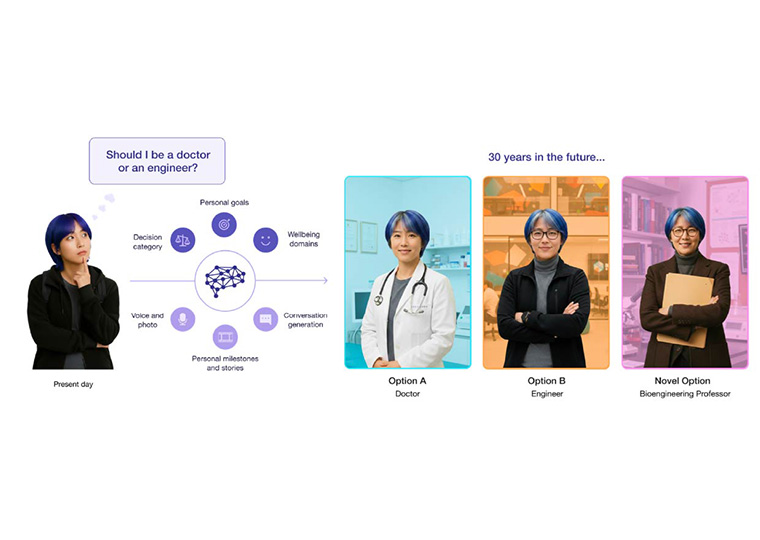Efficiencies spill over to suppliers even if they don’t adopt the technology themselves
Artificial intelligence promises to streamline logistics and transform manufacturers’ ability to predict demand, manage inventory and track orders. Yet, even as companies cautiously experiment with the latest AI tools, evidence supporting these promises can be hard to find. A study attempts to fill that gap.
A working paper suggests that companies committed to deploying AI systems gain significant operational benefits from the technology. What’s more interesting, those operational benefits spill over to their suppliers, even if the suppliers don’t deploy AI tools themselves.
The efficiency gains seen by suppliers result directly from AI’s ability to help manufacturers improve demand forecasts, schedule production and manage unforeseen events, according to the study by Hong Kong Polytechnic University’s Shucheng Miao, a Ph.D. student, UCLA Anderson’s Christopher Tang, Hong Kong Polytechnic’s Andy C. L. Yeung and Edwin T. C. Chang, and Oxford’s Benn Lawson. For suppliers, this means fewer inventory shortages or overages and less scrambling to fill last-minute orders.
Opt In to the Review Monthly Email Update.
These improvements are especially pronounced in complex supply chains, in which large numbers of suppliers are spread across multiple locations, because a company can use AI to optimize route planning and therefore reduce transportation costs and improve delivery.
Following Talent to Gauge AI Use
The gains, the authors suggest, “are not accidental or peripheral, but rather a direct consequence of the [manufacturer’s] internal capabilities in forecasting, scheduling and exception management, each significantly enhanced through its AI commitments.”
The researchers had to take an indirect path to obtain these results. Because there isn’t a lot of company-level disclosure about data deployments, they had to find a proxy measure for firms’ commitment to adopting AI technologies, which include machine learning, natural language processing and computer vision. They found it in AI-related job postings, which previous studies have found to align with the actual hiring of AI talent. Hiring, even more than procuring hardware or software, is a key factor in AI adoption because skilled talent — and its lack — is so critical to AI success. (Witness the hugely expensive AI hiring binge underway at Meta.) Job listings, then, can be a useful measure of a company’s commitment to deploying AI.
For their analysis, the researchers examined job postings for a variety of very specific AI-related skills (see list below), financial performance data for 239 publicly traded U.S. manufacturing companies and data about inventory turnover at 796 of their suppliers. The results indicate that commitment to deploying AI is associated with improved operational efficiency — optimized production, more accurate planning, increased use of automation and better quality control. The benefits are even greater for bigger, more complex companies with large workforces and geographically dispersed operations.
Sentiment Classification — is a subfield of sentiment analysis, which is the process of classifying whether the mood represented by a block of text is positive, negative or neutral. It is used by generative AI models to understand the emotional intent of a text.
Libsvm — stands for Library for Support Vector Machines, an open-source software library of algorithms used for classifying text and video and in handwriting recognition, among other applications.
Kernel Methods — a class of machine-learning algorithms used for identifying complex patterns in data.
MLPACK — a fast and flexible open-source library for machine learning and artificial intelligence, especially useful for novice developers.
Vowpal — Vowpal Wabbit is a fast, online system for solving complex machine-learning problems.
Suppliers benefit from their customers’ AI deployments, which improves coordination between the manufacturer and its suppliers. With AI, a manufacturer can develop better short- and long-range demand forecasts and identify subtle seasonal and other patterns in order flow. This in turn enables the manufacturer to create stable production plans without a lot of sudden speedups or slowdowns. The result is less volatility for suppliers, allowing them to improve their own planning, scheduling and inventory management and avoid overproduction, idle capacity, stock shortages and other inefficiencies.
And when things go wrong — when parts are delayed, defects appear and production bottlenecks occur — AI-powered tools can quickly detect the problem and allow both manufacturers and suppliers to take action.
Big and Complicated
AI’s benefits are greater when manufacturers and their suppliers operate in more complex environments. Large diversified companies have to deal with vast amounts of data and rapidly changing environments. In these situations, AI tools can deliver greater operational efficiency than conventional methods.
The same is true of suppliers in highly complex supply chains, in which a manufacturer has large numbers of geographically diversified Tier 1, or direct, suppliers. There, the ability of AI to improve coordination between manufacturers and its supply chain can make suppliers more efficient even if they don’t directly adopt the tools.
Suppliers that operate in high-tech industries or countries with more advanced AI environments or that emphasize research and development also see even greater gains when manufacturers deploy AI. These efficiency improvements are greater after two years, suggesting that the benefits of AI-related capabilities increase over time.
Although the study doesn’t directly demonstrate the operational benefits of deploying AI technologies, it does contain useful lessons for managers and suppliers. It suggests their companies can gain significant advantages by replacing simple transactional supply-chain relationships with long-term partnerships involving “shared systems, aligned incentives and collaborative innovation,” the authors write. “Strategic alignment in AI capabilities across buyers and suppliers can serve as a foundation for integrated digital ecosystems that are more resilient, responsive and sustainable.”
Featured Faculty
-
Christopher Tang
UCLA Distinguished Professor; Edward W. Carter Chair in Business Administration; Senior Associate Dean, Global Initiatives; Faculty Director, Center for Global Management
About the Research
Miao, S., Tang, C. S., Yeung, A., Lawson, B., & Cheng, T.C.E. (2025). Examining the Relationship Between Firms’ Commitments to AI Talent Development and Operational Performance. Available at SSRN 5256247.







